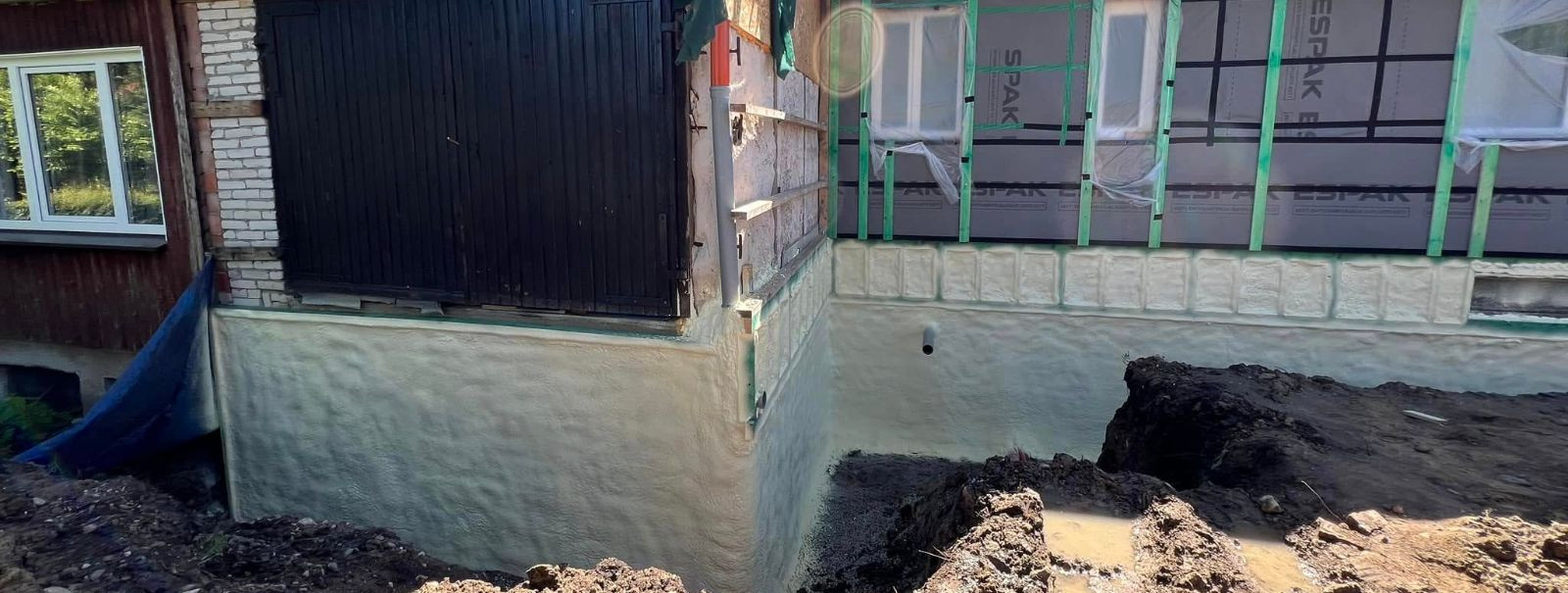The benefits of polyurethane foam insulation
Polyurethane foam insulation is a highly effective insulation material that has gained popularity in the construction industry due to its superior insulating properties and versatility. It is a type of spray foam insulation that expands upon application, filling gaps and creating an airtight seal. This makes it an ideal choice for homeowners, construction companies, and property developers in Estonia who are seeking efficient and sustainable insulation solutions.
Energy Efficiency and Cost Savings
One of the primary benefits of polyurethane foam insulation is its exceptional thermal performance. It has a high R-value, which measures the material's resistance to heat flow. This means that it provides excellent insulation, keeping homes warm in the winter and cool in the summer. As a result, it significantly reduces the need for heating and cooling, leading to substantial energy savings.
By minimizing heat loss and gain, polyurethane foam insulation helps homeowners and businesses reduce their energy consumption. This translates to lower energy bills, making it a cost-effective investment in the long run. The initial cost of installation is quickly offset by the savings on energy expenses, making it an attractive option for those looking to improve their property's energy efficiency.
Environmental Impact
Polyurethane foam insulation aligns with sustainable building practices, as it contributes to energy conservation and reduces the carbon footprint of buildings. Its ability to create an airtight seal minimizes air leakage, which is a significant source of energy loss in buildings. This makes it an environmentally friendly choice for those committed to sustainable construction.
Modern polyurethane foam insulation products are designed with low global warming potential (GWP) blowing agents. This means that they have a reduced impact on the environment compared to older insulation materials. By choosing polyurethane foam insulation, property developers and homeowners can contribute to a more sustainable future.
Durability and Longevity
Polyurethane foam insulation is highly resistant to moisture, which helps prevent the growth of mold and mildew. This is particularly important in Estonia's climate, where humidity levels can be high. By preventing moisture infiltration, polyurethane foam insulation helps maintain a healthy indoor environment and protects the structural integrity of buildings.
In addition to its insulating properties, polyurethane foam adds structural strength to buildings. It adheres to surfaces and hardens, providing additional support to walls and roofs. This enhances the overall durability of the structure, making it a reliable choice for long-lasting insulation.
Versatility and Application
Polyurethane foam insulation is versatile and can be used in a wide range of applications. It is suitable for both residential and commercial buildings, including new constructions and retrofits. Its ability to conform to any shape makes it ideal for insulating hard-to-reach areas and irregular surfaces.
The installation of polyurethane foam insulation is a straightforward process that can be completed quickly by professionals. The foam is sprayed onto surfaces, where it expands and cures in place. This minimizes disruption during construction or renovation projects, allowing for efficient and timely completion.
Health and Safety Benefits
By creating an airtight seal, polyurethane foam insulation helps prevent the infiltration of outdoor pollutants, allergens, and dust. This contributes to improved indoor air quality, which is essential for the health and well-being of occupants. It also reduces the need for air filtration systems, further enhancing energy efficiency.
Polyurethane foam insulation is designed to be fire-resistant, providing an additional layer of safety for buildings. It helps slow the spread of flames in the event of a fire, giving occupants more time to evacuate and reducing the risk of extensive damage. This makes it a valuable addition to any building's safety measures.






Comments (0)